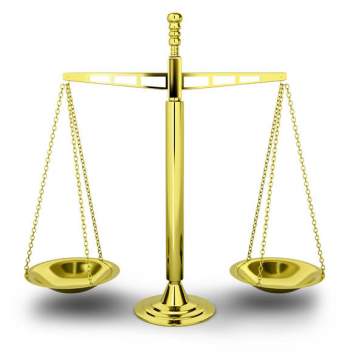
A Guide to the Criminal Justice System

What is the Criminal Justice System?
Criminal Justice System is the ideological institution responsible for the protection, preservation of, and adherence to the civil rights and civil liberties expressed within the Constitution of the United States. The Criminal Justice System is considered to be deeply, if not fully, rooted within the statutory precepts of criminal law. With regard to the legal field of criminal law, the Criminal Justice System is required to undertake the precepts set forth to provide for the rights of individuals both accused of crimes, as well as those convicted of crimes.
Criminal Justice System Methodology and Ideology
The Criminal Justice System is required to respect, protect, and uphold the legal rights of American citizens in the event of the suspicion of criminal activity, the investigation process, as well as both the protocols implicit within any subsequent arrest(s) or sentence(s). The Constitution of the United States expressed the required processes and procedures in which the tenets inherent to the Criminal Justice System are enacted.
The 4th Amendment and the Criminal Justice System
The 4th Amendment prohibits the unlawful search and seizure of residences belonging to citizens of the United States of America. This Amendment also defines the rights of privacy awarded to citizens of the United States.
A reasonable expectation of privacy is a legal instrument expressed within this Amendment requiring the Criminal Justice System to both preserve and protect the privacy of the general populace. This entails the prohibition of measures and acts that may be deemed as violating the private settings and personal domains belonging to private individual citizens.
The 5th Amendment and the Criminal Justice System
The 5th Amendment addresses the modern incarnation of the ‘Right to remain silent’. Preventing self-incrimination and any potentially-unlawful abuses of power undertaken by the Criminal Justice System.
The Miranda Rights are considered to be legal protocol whose enactment is required by the Criminal Justice System. They include making the criminal suspect aware of a right to consult with an attorney regardless of financial stature, a right to counsel and trial, and the right for any words spoken during the arrest to be admissible during a trial.
The 6th Amendment and the Criminal Justice System
The 6th Amendment addresses legal procedure undertaken with regard to criminal investigations and legal hearings undertaken by the Criminal Justice System.
Habeas corpus entitles all individuals to the right to a trial in a court of law.
The concept of ‘Presumed Innocence’ requires that the Criminal Justice System uphold the assumption of the innocence of a criminal suspect unless they are found guilty or have admitted guilt on their own accord.
The 14th Amendment and the Criminal Justice System
The 14th Amendment expressed that every citizen of the United States is permitted to be covered under the jurisdiction of the Constitution of the United States. Furthermore, this Amendment ensures that no governmental department has the right to deny American citizens of life, liberty, or the pursuit of happiness.
The Due Process Clause in the 14th Amendment to the Constitution expresses the obligation of the Criminal Justice System to protect and uphold an individual’s human rights and liberties, which includes fair, respectful, and ethical treatment devoid of undue bias and damage.
NEXT: A Guide to the Youth Criminal Justice Act





















